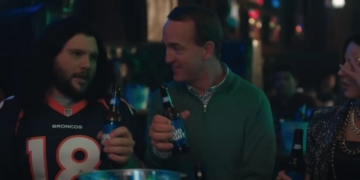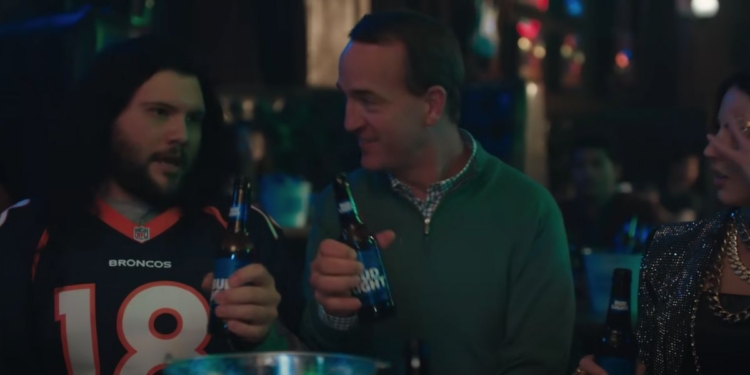As anyone even halfway aware of Bud Light’s financial woes since putting Dylan Mulvaney on one their cans predicted, their attempt to reclaim their domination of the beer market via funny Super Bowl ads did not have the intended result.
If anything, it was a waste of a $7 million plus brand rehabilitation effort.
The Wall Street Journal reported Wednesday that, despite the astronomical amounts of money Anheuser-Busch expended on the prime ad space of the Super Bowl, the company’s attempt to boost their flagging sales “barely moved the needle.”
While the Super Bowl helped raise sales ever so slightly, it was still left in the dust by Modelo Especial, who first dethroned the brand in May 2023 in the wake of the Dylan Mulvaney boycott.
The day of the Super Bowl, Bud Light accounted for 7.3 percent of all beer sold, while Modelo accounted for 8.7 percent.
That said, Bud Light still languishes in a sales slump. The Journal reported that Anheuser-Busch’s sales volume was down 30 percent from the same time last year.
Not only that, but The International Brotherhood of Teamsters, a union representing 5,000 Anheuser-Busch employees across the country, is threatening to strike on March 1 if they can’t reach a deal with the company by Feb. 29.
Despite how much Bud Light was banking on their “funny” ads to restore their customers’ good will, shelling out the funds to recruit both Peyton Manning and Post Malone, the data seems to indicate it was all a wasted effort.
Even attempts by the likes of Donald Trump to convince conservatives to give the company another chance has had little, if any, positive effect on the increasingly doomed brand.
The problem is, Anhesuer-Busch is trying to recover their old brand identity without addressing the reason their customers were boycotting in the first place.
No amount of the kind of brand revitalization described in The Journal’s first piece on their new ad strategy — no amount of celebrities, cringy humor, or patriotic Clydesdale horses — is going to paper over the spectacle of Anheuser-Busch publicly endorsing a figure that embodies the complete antithesis of most of their customers’ core beliefs.
Until they admit it was a mistake to endorse Dylan Mulvaney and support the transgender ideology, their sales and their brand are only going to continue this downward spiral.
At this point, it seems safe to say that the only way Bud Light could return to its position of prominence would be the passage of time, dulling people’s rage and eventually causing them to forget why they were angry in the first place.
Or, and unfortunately for Anheuser-Busch this might be the more likely scenario, the catastrophic fallout from this boycott will cause them to lose their top spot for good, joining other formerly dominant brands such as Blockbuster, Pan Am, and Netscape.
Like those defunct brands, their failure could at least serve as a warning against corporate hubris, terrible business decisions, and short-sighted pursuit of woke brownie points — a modern “Ozymandias” of sorts.
It might be too early to say farewell to Bud Light, the former king of beers, but no one knows what the future holds.
This article appeared originally on The Western Journal.


























 Continue with Google
Continue with Google